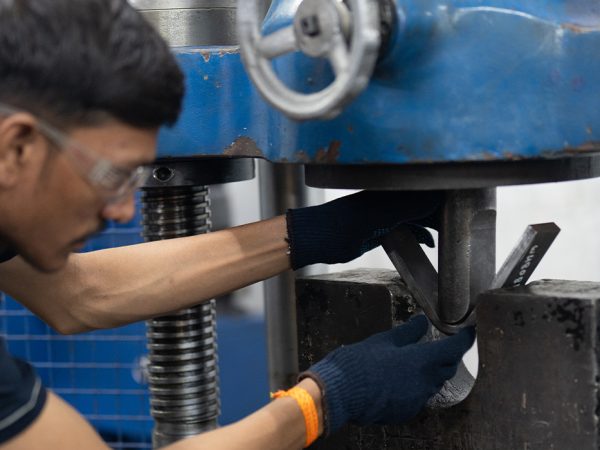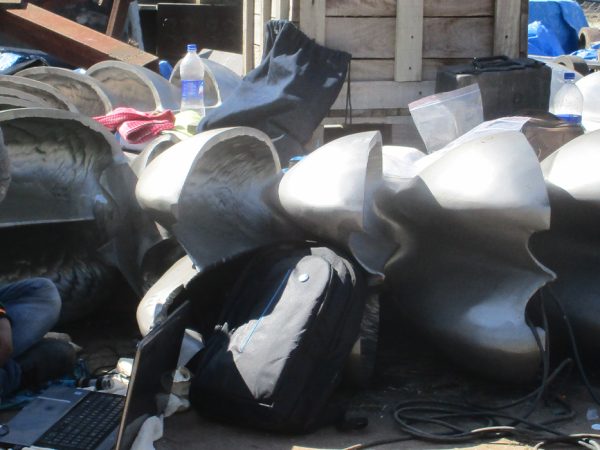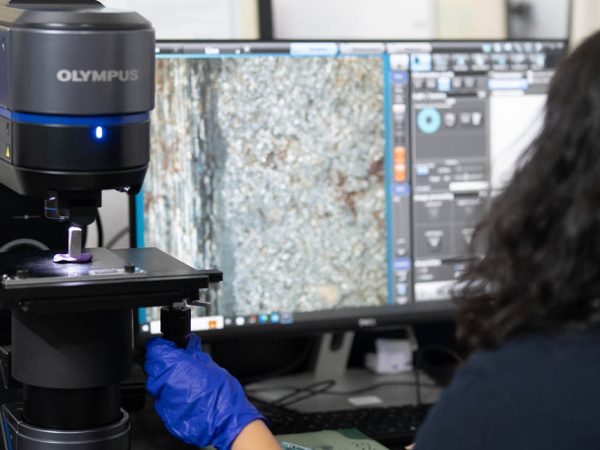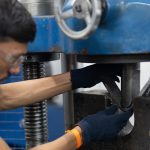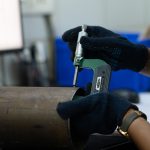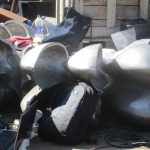Failure and Root Cause Analysis is the cornerstone of reliability and operational excellence in modern industries. It helps detect and eliminate the underlying causes of breakdowns, material failures, and process deviations. Instead of only repairing visible damage, it digs deeper—examining how design, environment, materials, and human factors contribute to failure.
At TCR Advanced Engineering Pvt. Ltd., we specialize in delivering world-class Failure Investigation and Root Cause Analysis services supported by decades of metallurgical expertise and state-of-the-art laboratories. Through a combination of advanced failure testing services, analytical tools, and expert engineering judgment, TCR delivers root-cause insights that empower industries to enhance quality, improve reliability, and optimize their processes.
Why Industries Need Failure and Root Cause Analysis
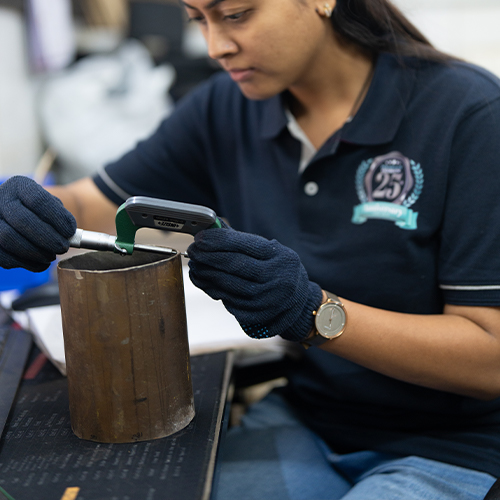
1. To Ensure Safety and Regulatory Compliance
Industrial failures can lead to catastrophic consequences, including accidents, injuries, or environmental damage. Failure and Root Cause Analysis identifies early warning signs and helps prevent incidents before they occur. For regulated industries like oil & gas, aerospace, and pharmaceuticals, FRCA ensures compliance with safety and quality standards by identifying risk factors and reinforcing preventive measures. This proactive approach builds trust, enhances worker safety, and protects brand reputation.
2. To Reduce Maintenance and Operational Costs
Recurring failures often cost companies millions in unplanned maintenance and lost productivity. Through Failure Investigation, organizations can identify why failures happen and eliminate the underlying causes. By applying root-cause insights, industries minimize breakdown frequency, extend equipment lifespan, and lower repair costs. The process replaces guesswork with data-driven decisions, ensuring every maintenance activity contributes to long-term efficiency and financial savings.
3. To Improve Product Reliability and Quality
Product defects or premature failures can damage credibility and customer satisfaction. Root Cause Analysis uncovers the design flaws, material inconsistencies, or manufacturing errors behind these failures. Once identified, these insights are used to enhance the production process and product design. As a result, industries achieve higher performance standards, lower warranty claims, and build stronger customer loyalty through dependable and consistent quality.
4. To Enhance Productivity and Process Efficiency
Frequent machine stoppages, process deviations, and rework can disrupt production schedules. By conducting detailed Failure and Root Cause Analysis, industries detect inefficiencies, whether mechanical, human, or material-related. Once corrected, these improvements lead to optimized workflows, increased throughput, and reduced downtime—allowing companies to meet targets faster and with greater accuracy.
5. To Strengthen Design and Material Selection
A common cause of industrial failure lies in inappropriate material selection or design under specific operating conditions. Failure Testing Services at TCR analyze materials under stress, temperature, and environmental exposure to evaluate their suitability. The findings help engineers refine designs and choose materials that perform reliably under real-world conditions, ensuring safety and long-term performance.
6. To Support Continuous Improvement and Innovation
In competitive markets, continuous improvement is key to staying ahead. Failure and Root Cause Analysis provides valuable feedback that feeds into product innovation and design optimization. The lessons learned from one failure often become the foundation for next-generation solutions. This approach transforms failure from a loss into a learning opportunity—driving technical excellence and innovation.
7. To Build Customer Confidence and Brand Reputation
Consistent quality and reliability directly influence customer trust. By investing in Root Cause Analysis, industries demonstrate their commitment to quality assurance and accountability. It builds brand credibility, assures customers of consistent product performance, and reduces the risk of recalls or disputes—ultimately enhancing long-term customer relationships.
Process of Root Cause Analysis
Step 1: Problem Identification
The process begins by clearly defining the issue, symptoms, and scope of the failure. Engineers collect all background data, such as operating conditions, failure timelines, and environmental influences, to understand the failure context.
Step 2: Data Collection
Comprehensive data is gathered through site inspections, sample collection, and failure testing services like metallurgical examination, chemical analysis, and non-destructive testing. This ensures every aspect of the failure is captured accurately.
Step 3: Failure Investigation
Samples are analyzed to determine fracture characteristics, corrosion patterns, or deformation mechanisms. This stage combines visual examination with microscopic and chemical analysis to pinpoint what physically went wrong.
Step 4: Root Cause Analysis
Here, engineers interpret all test data and correlate findings with operational factors. The objective is to identify the true root cause—whether it’s material fatigue, design flaw, contamination, or human error.
Step 5: Corrective and Preventive Action
Once the cause is identified, experts propose corrective measures and preventive actions such as design changes, maintenance adjustments, or training programs to ensure the issue does not reoccur.
Applications of Root Cause & Failure Analysis Across Industries
Automotive Industry
Automotive manufacturers depend on Failure and Root Cause Analysis to ensure safety, reliability, and compliance. When components such as engine parts, braking systems, or fuel injectors fail, TCR’s team conducts detailed failure investigation using metallurgical and fatigue analysis. The insights lead to design improvement, enhanced material strength, and increased vehicle performance. This ensures vehicles remain safe and dependable, even under extreme conditions, while reducing warranty claims and recalls.
Aerospace Industry
The aerospace sector demands precision and zero-error tolerance. Every component—whether turbine blades, fuselage panels, or fasteners—must perform flawlessly. Root Cause Analysis helps identify microscopic cracks, fatigue failures, and manufacturing defects that could jeopardize flight safety. TCR’s advanced testing services ensure each component meets international aviation standards, reducing risk and ensuring long-term reliability in critical aerospace operations.
Oil & Gas Industry
Pipelines, drilling rigs, and refinery systems operate under severe conditions where failure can lead to financial and environmental disasters. Failure and Root Cause Analysis identifies corrosion mechanisms, material degradation, and stress cracking. TCR’s detailed failure testing services provide early detection and preventive recommendations, helping industries improve pipeline integrity, reduce downtime, and ensure environmental and worker safety.
Power and Energy Sector
Power plants depend on reliable equipment performance for uninterrupted energy generation. Failures in boilers, turbines, or heat exchangers can result in costly shutdowns. Through Failure Investigation and Root Cause Analysis, TCR evaluates thermal fatigue, material embrittlement, and high-temperature corrosion. The insights ensure better material selection, efficient maintenance planning, and improved plant reliability, minimizing unexpected outages.
Pharmaceutical & Chemical Industry
In highly regulated industries like pharmaceuticals and chemicals, even minor failures can impact production quality and compliance. Failure and Root Cause Analysis identifies contamination sources, corrosion, or material incompatibility within process equipment. TCR’s expertise ensures product purity, process safety, and compliance with GMP and regulatory standards. These analyses support continuous manufacturing improvement and secure safe, contamination-free production.
Heavy Manufacturing & Metal Industries
In steel plants, foundries, and heavy machinery production, failures often occur due to thermal stress, improper heat treatment, or fatigue cracking. TCR’s failure testing services determine mechanical and metallurgical causes behind such issues. By delivering detailed root-cause insights, industries can refine their manufacturing processes, improve component life, and optimize performance for heavy-duty applications.
Why We Are Best for Failure Investigation
TCR Advanced Engineering Pvt. Ltd. stands as a trusted name in the field of Failure and Root Cause Analysis because of our deep technical expertise, accuracy, and commitment to innovation. Our multidisciplinary team of engineers, metallurgists, and material scientists bring decades of experience in handling complex failure cases across industries.
We combine advanced analytical techniques—like SEM, EDS, metallography, and chemical analysis—with robust engineering interpretation. Every Failure Investigation is evidence-driven, focusing on both immediate and contributing factors. Our failure testing services provide accurate, reproducible results that help industries make confident decisions.
What sets TCR apart is our end-to-end approach: from identifying the failure to recommending preventive solutions and performance improvements. Our root-cause insights not only solve problems but also empower clients to enhance reliability, optimize operations, and sustain excellence for years to come.
Conclusion
Failures, when analyzed correctly, can become powerful opportunities for improvement. Failure and Root Cause Analysis transforms every breakdown into valuable knowledge—helping industries enhance product quality, safety, and performance.
At TCR Advanced Engineering Pvt. Ltd., we don’t just investigate failures—we build reliability. Through meticulous analysis, advanced testing, and expert interpretation, we deliver actionable root-cause insights that protect operations and improve efficiency. By partnering with TCR, industries gain more than solutions—they gain confidence in the integrity and longevity of their systems.
FAQs
Q1. What is Failure and Root Cause Analysis?
It is a structured, scientific process used to identify the true reason behind a failure. By analyzing materials, design, and operating conditions, it helps determine how and why an incident occurred and prevents recurrence.
Q2. How is Root Cause Analysis different from general inspection?
While inspections detect visible defects, Root Cause Analysis dives deeper into the underlying mechanism—whether it’s stress, corrosion, or design flaws—providing long-term solutions rather than surface-level fixes.
Q3. What industries benefit most from Failure Investigation?
Industries like aerospace, automotive, power, oil & gas, chemical, and heavy engineering rely on it to ensure safety, reliability, and consistent product performance.
Q4. What tools are used in Failure Analysis?
Common tools include Scanning Electron Microscopy (SEM), Energy Dispersive Spectroscopy (EDS), metallography, mechanical testing, and non-destructive examination methods.
Q5. Why is Root Cause Analysis critical for product reliability?
It identifies weaknesses in design, process, or materials and enables improvements that enhance the durability and reliability of products in real-world applications.
Q6. How do failure testing services contribute to analysis?
They replicate operating conditions to observe material behavior under stress, temperature, or pressure, helping to pinpoint failure mechanisms accurately.
Q7. How does TCR ensure accuracy in its investigations?
TCR combines expert engineering judgment, cutting-edge laboratory equipment, and years of cross-industry experience to deliver scientifically validated and unbiased results.
Q8. What are root-cause insights?
They are detailed findings derived from analysis that reveal the fundamental reason for a failure and provide data-driven recommendations to prevent similar issues.
Q9. Can Root Cause Analysis help in preventive maintenance?
Yes, it helps industries anticipate potential failures before they happen, enabling predictive maintenance strategies that save cost and downtime.
Q10. Why choose TCR Advanced Engineering for Root Cause Analysis?
Because TCR offers an unmatched blend of expertise, technology, and precision—delivering complete failure investigation and preventive solutions trusted by global industries.

